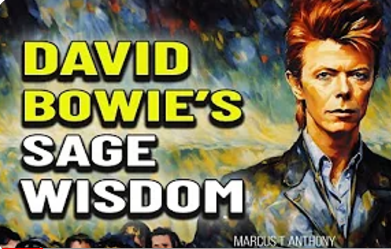In my book Discover Your Soul Template (http://www.amazon.com/Discover-Your-Soul-Template-Intelligence/dp/1594774269). I wrote about “living your Bliss” – following your heart to live the life of your dreams. Using Integrated Intelligence, you can listen to your guidance as you advance confidently towards your Bliss. Yet I would like to clarify a certain misunderstanding which exists amongst some alternative spiritual philosophies.
New Age ‘go with the flow’ philosophies may delude some people into thinking that hard work and ‘deliberate practice’ are not required to achieve success and excellence in a particular field of endeavor. ‘Deliberate practice’ is the intelligent application of repetition in order to improve performance. Let me assure you that intelligence, sustained commitment and hard work will almost certainly be required if you are live your Bliss. The truth is that this is a very competitive world, and that standards of performance and excellence have increased dramatically in many fields in recent years. Certainly, if your goal is to reach world class status, then deliberate practice cannot be avoided.
I highly recommend Geoff Colvin’s fantastic book Talent is Overrated as a good introduction to this topic. It shows that deliberate practice is what often separates genius form very good. Colvin outlines the following features of deliberate practice.
Deliberate practice is hard work. It is not what we normally think of as practice, such as when you strum a guitar for a bit of fun. You have to move out of your comfort zone to perform deliberate practice. That’s not much like ‘Bliss’ at all. So this is where we need to be careful that we do not trip ourselves up with the idea of ‘Bliss’. Living your Bliss does not preclude the possibility of discomfort and a certain degree of sacrifice.
Deliberate practice is designed specifically to improve performance. This means intelligent thought is put into the practice session, so that deliberate and conscious goals for improving performance are met. This in turn requires you to carefully define the elements of your skill that require enhancement, and then go about working at those. Benjamin Franklin, for example, wanted to be a great writer, but realised that his vocabulary was lacking, so systematically set about improving it.
Repetition is common to deliberate practice. Most of the greats in any given field repeat practice activities far more than mere amateurs. This requires great concentration and commitment. It is said that as a boy Don Bradman, an Australian cricketer who had a batting average of just under 100 runs per innings (almost twice as good as the next best guy) used to spend hours hitting a golf ball up against a metal tank using a cricket stump as a bat, just to improve his hand/eye coordination.
To be most effective, deliberate practice requires feedback; and generally speaking, the more the better. You must either find someone who is willing to tell you your shortcomings, or you must make the time to honestly critique your own work on a regular basis.
Practicing something systematically and intelligently is highly mentally demanding. It requires a great deal of focus and concentration. Studies have shown that excellent violinists practice a lot more than those of lesser skill. Generally speaking, there are limits to how long you can practice, however. Sessions of no more than ninety minutes at a time, and totaling four to five hours per day are ideal. Any more than that, and you risk burnout. Mental visualisation should not be underestimated here, as it can greatly enhance performance, as long as the imagined practice is correct and conforms to the requirements of deliberate practice. That means that specific skills are identified, and the imagined scenario is as life-like as possible.
So living your Bliss may require hard work and commitment. A lot of New Agers and dharma bums falsely believe that if it isn’t fun and ‘easy’, then it is not spiritual. Hard work will be a part of the journey if you want to reach mastery in most fields.
The key distinction if you have a genuine spiritual life focus is that your deliberate practice will be done in alignment with Spirit. Your mind will remain present and mindful of intuitive prompts when deliberate practice is required. You will have the advantage over many others in your field in that you will be able draw upon integrated intelligence as you go about creating, practicing and performing. You won’t find this distinction outlined in books like Talent is Overrated, because the idea lies beyond the understanding of most writers and thinkers in mainstream culture and science. The irony is that many performers and artists are very aware of the understanding. So with this final distinction, it is a case of following the practitioners, not the “experts.”
Marcus







2 thoughts on “Why Hard Work May Be Needed To Live Your Bliss”
I haven’t read your book, only this post, which seems to be cautioning people that following your bliss is based on hard work. I couldn’t agree more. However, my own take on the idea of living your bliss is that it is the journey that is the bliss too, not that you decide you want to be concert pianist because you feel that would be bliss for you, then spend years and years acquiring the expertise to be one through forcing yourself constantly to do things that do not light you up (which I feel is implied by the way you wrote your article). If being a concert pianist fills you with delight, the journey has to fill you with delight too, most of the time (there will always be those days…). Following your bliss is finding that the ‘work’ needed to be who or what you want to be is, in fact, so enjoyable that you could do it all day. Someone else’s idea of horror and hard work is your idea of joy – of bliss, spending all day and half the night practising a sonata (for example), instead of going to the beach with your friends. I cannot articulate exactly what I want to say here, but have done my best.
I haven’t read anyone who says that it should be fun and easy. But I have experienced that if it’s really hard and I’m constantly struggling for some future goal, either I’m doing it the wrong way (making it hard for myself), or that perhaps the goal isn’t really what I want anyway if the lead up to it is so tortuous. How can following your bliss mean years of struggle, sacrifice and who knows what, unless it doesn’t feel like struggle to you, and you would sacrifice almost anything to do what you feel you were put here to do? Following your bliss (or living it) is feeling blissful in the present moment, not at some future date that may never actually arrive. That is the hypnosis of the rest of the world. Work hard, make sacrifices, do stuff you don’t want to do now and eventually you’ll be able to have some fun at some later date. MHO of course. Thanks for the article.
Thanks for the thoughtful response, Cherry. And all good points. One thing to contemplate. What if one has a calling which is very demanding, requiring great sacrifice? Is there such a thing as a divine calling like this?